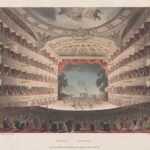7 great love stories for cynics.
It can be tough to be a cynic on Valentine’s Day. The color palate alone is enough to send some of us into a sugar coma. And don’t get me started on the narratives. So if you’d like to hide from your friends and family—or just the relentless bombardment of mushy advertising—this week, but still feel the vague urge to “participate” in the “culture” (if there’s a permanent cure for this, let me know) consider curling up with one of these novels: love stories for those who basically tolerate love, but have their doubts. After all, we all know that the best Valentine of all time is … books.
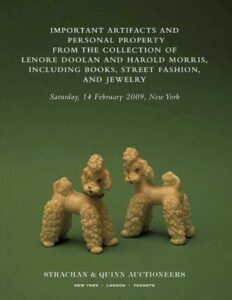
Leanne Shapton, Important Artifacts and Personal Property From The Collection of Lenore Doolan and Harold Morris, Including Books, Street Fashion and Jewelry (2009)
Your inner cynic will not be surprised to know that the relationship at the center of this genre-inventing book is over. Not only is it over, but it has been reduced to 325 lots, presented in auction catalog style, from the earliest photo to the bitter end. Shapton has created a brilliant artifact made of brilliant artifacts, a sort of mystery novel that is as much about a failed romance as it is about how we live and what we leave behind. Unfortunately for your inner cynic, it is moving, but it’s also cerebral enough that I think she will have a fine old time.
P.S.: I haven’t actually looked back at this book since I read it straight through in 2009, on a rainy afternoon in October, before falling asleep on my couch; only cracking it open now do I realize that in the included photographs Doolan is “played” by Sheila Heti (and Morris by Paul Sahre?). A little thrill.
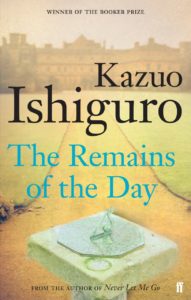
Kazuo Ishiguro, The Remains of the Day (1989)
Is it fair to say that The Remains of the Day is still Ishiguro’s most famous novel? (Just like Stevens, time seems to pass me by…) I think it’s fair to say that it’s his most romantic novel, despite there being very little actual romance, except for the totally unprofessional passions boiling beneath the surface. Nothing ever happens, no matter how much the reader might wish it to, because the characters, particularly Stevens, of course, keep getting in their own way. That’s how it goes most of the time, but rarely do we get as moving and delicate a view of it as Ishiguro gives us here.
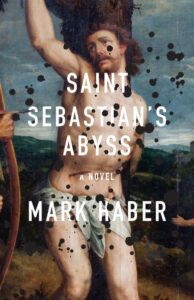
Mark Haber, Saint Sebastian’s Abyss (2022)
This is a novel about love, though it is not romantic love, but rather a) an intense and thwarted friendship and b) the shared obsession that both united and destroyed said friendship. “What I wanted more than anything was to be standing beside Schmidt, in concert with Schmidt, at the foot of Saint Sebastian’s Abyss along with Schmidt, hands cupped to the sides of our faces, debating art, transcendence, and the glory of the apocalypse,” our narrator tells us. If that isn’t love, I don’t know what is. But this is perfect for the cynic: a love story that gently mocks its lovers, such as they are, even as you grow to care for them, barbed and satirical and very, very funny.
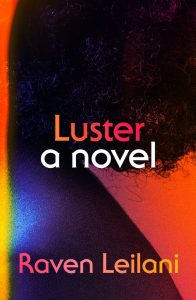
Raven Leilani, Luster (2020)
Sardonic, sexy, and suffering no illusions about romance—at least if you’re a young Black woman dating a married white man in his forties—this novel is perfectly suited for the romantic cynic but will please lovers of language most of all.
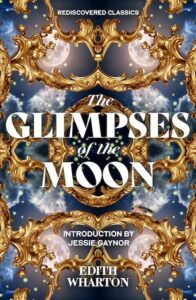
Edith Wharton, The Glimpses of the Moon (1922)
As Lit Hub’s Jessie Gaynor has written:
Wharton never promises that the two [lovers at the heart of this novel] are soulmates—rather, they are one another’s least dour option. “Not great love, then…but just the common humble average of human love was hers,” Wharton writes in Susy’s moment of revelation that she must save her marriage. There’s a kind of refreshing pragmatism there, the sort that only a cynic writing a love story can furnish.
That Edith Wharton’s oeuvre reveals an essential pessimism about humanity is undeniable. The Glimpses of the Moon’s will-they-won’t-they frame belies the fact that it’s still a Wharton novel. The novel was published in 1922, the year regarded as the birth of Modernism. Where the tide of literature was turning toward experimentation and disillusionment, Wharton wrote a novel of escape.
For her, perhaps, this was the experiment—and there’s great pleasure to be found in reading a beloved author’s experiment. Even when writing an escapist romance, Wharton is inescapably herself: A brilliantly funny cynic; a razor sharp observer of the mores of the very rich; a chronicler of bad behavior.
See also: Wharton’s The Age of Innocence.
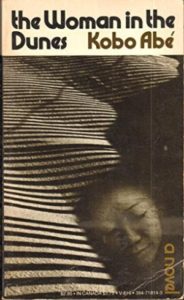
Kōbō Abe, The Woman in the Dunes (1962)
My love for this novel is well documented, but I do not typically consider it a love story. Except that, of course, it’s a tale as old as time: Man is trapped at bottom of hole, forced to dig against the encroaching sands for the rest of time, woman is trapped at bottom of hole, forced to dig against the encroaching sands for the rest of time. What else is love?
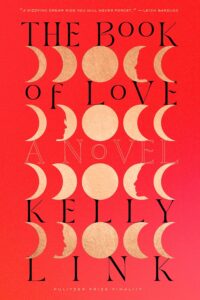
Kelly Link, The Book of Love (2024)
I can’t resist including Link’s long-awaited doorstopper (insert wry/earnest commentary about this being the beloved MacArthur Genius Grant recipient’s debut novel here) in this list. It is actually a big and big-hearted (though not in the corny way) contemporary fantasy novel (for adults), and not cynical in the least, except for the snarky Buffy the Vampire energy that permeates its pages. But if you are, possibly, a cynic looking for something to give you some renewed faith in love/friendship/literature in this month of cold and candy hearts, and/or find yourself wishing for a little more magic in your life, this is the novel for you. It’s even red.



